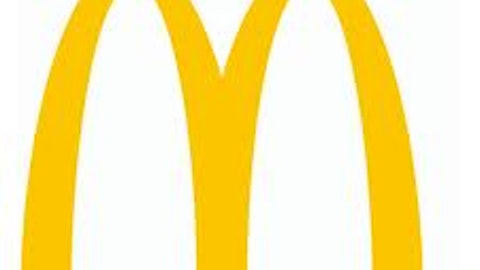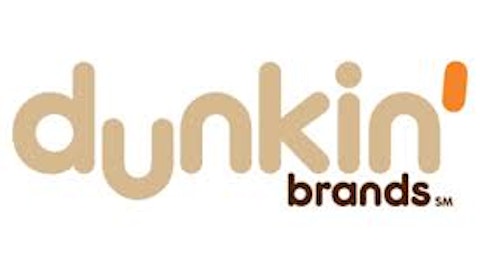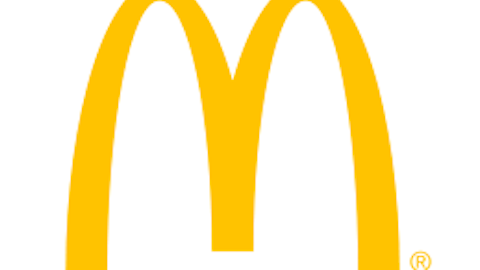After taking measures to settle the chicken scare in China, Yum! Brands, Inc. (NYSE:YUM) got caught in UK’s horsemeat scandal. British food regulators undertook tests that revealed horsemeat in Taco Bell, a subsidiary of Yum!. The company accepted that some of its batches of ground beef contained traces of horsemeat, and is extremely disappointed to find such adulteration. This is bad news for the company, particularly at a time when it is struggling hard to fix the food safety concern in its largest market, China.
The Food Standards Agency (FSA) had conducted 1,797 tests over a period of seven days to examine beef products, and investigate food processing chains that form a part of the supply chains of big food brands. Over 99% of the results were negative, but about 1% turned out to be positive for horsemeat contamination. The 1%, which comprised 4 tests, was found to have equine DNA. These four tests were for Taco Bell ground beef, beef skewers catered by Brakes, and spaghetti bolognese and beef lasagna – the two meals offered by Birds Eye. Taco Bell has apologized to its customers and says it isn’t certain if the horsemeat had been served to any of them.
However, as soon as Yum! Brands, Inc. (NYSE:YUM) learnt of the Taco Bell horsemeat issue, the Mexican fast food chain immediately conducted its own testing to confirm the news. Right after it identified traces of horsemeat, it took off beef from its menu in the three Taco Bell outlets located in the U.K., and stopped purchasing meat in the region. The fast food restaurant chain informed the FSA about the steps that it undertook. To ensure that the ingredients supplied are 100% beef, the chain would perform a test on every batch of beef that reaches its processor, and again test it before it leaves for the outlets.
Yum! which also operates Pizza Hut and KFC, asked its U.S. Taco Bell customers not to worry about the ingredients, as domestic restaurants do not receive meat from European suppliers. Domestic customers won’t be impacted by the U.K. scandal, and should be assured of the quality of beef that undergoes USDA inspections, as well as 20 checkpoints of the company.
Other food companies in Europe are also suffering from the horsemeat issue.
Other sufferers
Some of the other names that bought horsemeat in the name of beef include Burger King Holdings, Inc. (NYSE:BKW), Tesco Corporation (USA) (NASDAQ:TESO), Nestle SA (VTX:NESN), Birds Eye, Findus and Ikea. In January, Burger King Holdings, Inc. (NYSE:BKC) was discovered to have traces of horse DNA in some hamburger patties that came from a food processing unit located in Ireland. This Irish supplier was found to keep products containing horse, but it did not reach Burger King Holdings, Inc. (NYSE:BKC) restaurants. The company instantly severed ties with this beef supplier as a part of its preventive measure.
Tesco Corporation (USA) (NASDAQ:TESO), Britain’s biggest supermarket, also got hit by the scandal as its hamburgers were found to contain horsemeat. The company would now be conducting tests, not on a sample basis, but on all the meat that it sells to ensure premium quality and avoid adulteration. The entire cost would be borne by the company, and this would squeeze the profit margin. In addition, the supermarket chain would go for close investigation of its supply chain to be confident about the source of its products. The grocery giant is now warning of higher prices, considering that the scandal will suppress its profit.
In the wake of the horsemeat scare, McDonald’s Corporation (NYSE:MCD) asked its meat suppliers to hold supplemental DNA test to be 100% confident that the hamburgers had beef and not horsemeat. On Friday, Yum!’s Oak Brook-based arch-rival confirmed that its British menu did not contain horsemeat, as sample tests conducted by the fast food giant suggested that its products were free of horsemeat. However, both Yum! Brands, Inc. (NYSE:YUM) and McDonald’s are facing food safety issues in China.
Tension in Yum!’s Mainland
2013 is off to a rough start for Yum! Its biggest and most lucrative market, China, discovered that the chicken used in KFC restaurants was injected with inappropriate levels of antibiotics. The quick service restaurant chain has therefore ended ties with over 1,000 poultry farms in China to tighten food safety in the mainland, which accounts for over half of Yum!’s top-line. Even McDonald’s has been alleged of using chicken with high antibiotics level. Just as Yum!, the company also cut off its agreement with poultry supply units accused of processing such chicken.
However, China is a more crucial market for Yum!, given its huge presence in the emerging economy. The company operates over 4,000 KFCs and 700 Pizza Huts here. So, it is critical for the fast food giant to regain its brand reputation and win back the lost trust of its Chinese customers. But, as the supplies are dependent on small scale farms that are hard to track, it would be a tough task for Yum! to ensure the food safety level.
To conclude
Yum!’s UK scandal is another reason why customers could lose confidence in the brand. It is for certain that the road ahead is tough for the fast food company, given that its KFC China sales have dropped drastically with a dull outlook, at least in the near future. Yum! is working very hard to restore its brand image in the foreign markets by tightening its supply sources. The current year outlook remains gloomy as the scenario is expected to improve in late second half of the year. In the meanwhile, it is extremely important for Yum! Brands, Inc. (NYSE:YUM) to ensure safety and quality of its ingredients along with tightening its supply chain.
The article Testing Times for Yum! as Taco Bell Gets Caught in Horsemeat Scandal originally appeared on Fool.com and is written by Rita Chattaraj
and is written by Rita Chattaraj
Copyright © 1995 – 2013 The Motley Fool, LLC. All rights reserved. The Motley Fool has a disclosure policy.






